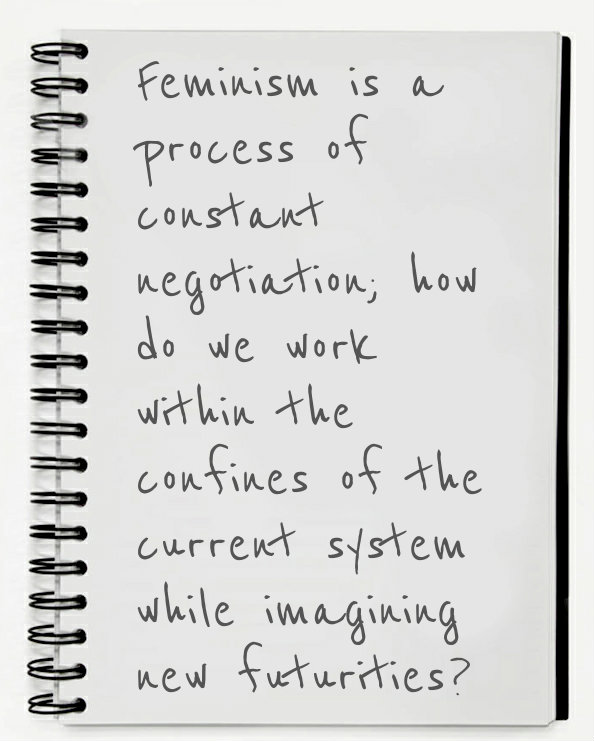Hey folks! Today, we would like to feature Tria Wakpa Blu (formerly Tria Andrews) and her talents as a wonderful contributor towards the revitalization of Third Woman Press. Read on to learn more about this awesome and inspiring woman and her approach to sustaining an interactive, decolonial, all-inclusive feminism!
Third Woman Press Collective (TWPC): Hey there, Tria! It’s a pleasure to get to chat with you today, thanks so much for making time for us! Can we start with where you are currently geographically located?
Tria Wakpa Blu (TWB): I live in Vallejo, California as a guest on Ohlone land. But since beginning my doctoral work at UC Berkeley, I’ve traveled frequently for presentations, performances, and research. In 2012-2013, I had the amazing opportunity to study abroad on a Fulbright in Manila, where some of my maternal relatives are from. I’ve been fortunate to receive support, which has allowed me to visit the Rosebud Reservation—the site for my dissertation research—during the summers.
TWPC: That sounds amazing, we wish you the best of luck as you continue with your research and dissertation! How would you say you define your feminism?
TWB: As a woman of color, I’m drawn to a praxis that actively works against mainstream feminism by centering the epistemologies of Indigenous Peoples and people of color while locating our experiences within specific historical and political contexts. Feminism is a process of constant negotiation; how do we work within the confines of the current system while imagining new futurities?
TWPC: We love that, especially how you describe feminism as an active, ongoing process. Very interesting perspective, and we couldn’t agree more. What keeps you busy?
TWB: I create work at the convergence of education, incarceration, and embodied practice, and I do my best to balance those commitments with time devoted to nurturing strong relationships with close friends, family, and my new husband, Dr. Wakpa Blu. One of the reasons that I enjoy my work so much is because for me work is about cultivating and sustaining healthy relationships with community. I feel grateful that my dissertation—which investigates the relationships between colonial education paradigms at a former mission school and the culturally relevant curricula at a tribally run juvenile hall—has allowed me to collaborate with leaders and educators on the Rosebud Reservation.
I work in many different, but related ways. I’m also completing a collection of poetry, titled, “Dead Center of the Heart,” which I began in 2012 while studying abroad in Manila. The manuscript weaves familial and historical experiences of Native Americans and Filipinos as a result of U.S. colonial policies and their legacies. I have performed collaborative and solo pieces that combine original spoken word and decades of training in the martial arts and yoga. Recently, my husband and I began performing together. In April 2015, we performed for over 500 people at UC Berkeley’s Haas Institute for a Fair and Inclusive Society’s Othering & Belonging Conference the day before our wedding. We have given several other performances within the last few weeks at: UC Davis’s Native American Studies Graduate Student Symposium, UC Riverside’s Indigenous Choreographers Project and Medicine Ways Conference, and San Francisco’s Litquake and Yerba Buena Gardens Festival.
Because I am deeply invested in creating spaces that bridge the academy and community, I have served as a co-guest editor for As Us Journal and will serve as a co-guest editor for the University of California, Los Angeles’s The American Indian Culture and Research Journal in issues that feature writing by people who are incarcerated. I am fortunate to have taught courses for Poetry for the People, Prison University Project, Sinte Gleska University (the tribally run college located on the Rosebud Reservation), UC Berkeley, and the University of San Francisco. I have also taught yoga to youth in detention facilities for over seven years.

Tria and her husband, Dr. Wakpa Blu, practicing their duet—choreographed by Rulan Tangen of Dancing Earth—for the 2015 Indigenous Choreographers in Riverside Project.
TWPC: You certainly have your hands full! We are so happy you are able to engage with the community in such important and fulfilling ways. We also wish you congratulations on your marriage! Among all of those amazing things happening, what influenced your decision to help fundraise for Third Woman Press?
TWB: I have deep respect for TWP’s project. I feel honored to support an organization that is dedicated to publishing work by women of color and building cross-cultural alliances that transcend nation-state borders. As Audre Lorde writes, “poetry is not a luxury. It is a vital necessity of our existence. It forms the quality of the light within which we predicate our hopes and dreams toward survival and change, first made into language, then into idea, then into more tangible action. Poetry is the way we help give name to the nameless so it can be thought.” Writing for myself and other women of color is a survival strategy and a decolonial tool to reimagine and recreate the world as we know it. The issues in my poetry are urgent and real, and I feel responsibility to educate audiences about them. Often when I am asked to read my poetry, I also speak of statistics—for example, how Native Peoples are overrepresented in prisons and along with African Americans constitute a racial group most often killed by police. Through grounding our writing in specific historical and political experiences, we recognize our connections, which can help us build alliances for social change. TWP is doing really important work by foregrounding alternative narratives that are frequently not represented in dominant discourses.
TWPC: And we have so much gratitude for your support and contributions, thank you, Tria. What was your favorite detail, performance, interaction, etc., from the fundraiser you participated in?
TWB: The fundraiser, which was a reading held at UC Berkeley, felt like a celebration with community. The space was warm and inviting; we ate together. I felt energized sharing my work alongside powerful women of color writers and performers. I had close friends and family in the audience. Folks were generous with their feedback.
The title for the fundraiser “Voices from the Silence”—which is a central theme in my dissertation, creative writing, and performance—also interested me. My dissertation uses a methodology that seeks to illuminate underrepresented histories, which are frequently omitted from archival accounts. Including interviews, oral histories, and literature is a way to gain insight into these exclusions. This methodology highlights the continuity between the past and present, which results from the structural oppression of Native Peoples. Such an understanding of temporality is common in critical ethnic studies discourses. In “a crow gathering,” a poem published by As Us Journal, I write, “stillness fills the space / even silence speaks,” and in “Dead Center of the Heart: A Duet,” which my husband I recently performed at the Othering & Belonging Conference in Oakland, we draw attention to the ways that silence speaks—and sometimes screams—calling out to each other from across the stage, “The silence of the archives,” our voices growing louder each time.
TWPC: Beautifully said. We wholeheartedly stand behind giving spaces especially for those whose voices have been silenced for so long–that is our main motivation. What tips do you have for emerging feminist artists?
TWB: Find strong mentors. Be strong mentors. Be generous and kind.
TWPC: Ah, very good advice. Our allies, friends, and family can be such valuable sources of wisdom and support, it’s so important to go to each other for support. Is there any specific area, field, or place that you feel really needs a feminist intervention right now?
TWB: Dominant discourses surrounding yoga, which is why I founded the Race and Yoga Working Group in 2011 through the Center for Race and Gender at UC Berkeley. In 2014, Race and Yoga co-facilitator, Dr. Sabrina Strings, and I hosted our first annual, sold out conference, “Yoga and Access: Questions of Inclusion,” which was complimentary and open to the public. Sabrina and I also co-founded the interdisciplinary, peer-reviewed, and open-access journal, Race and Yoga, which is forthcoming in Fall 2015 through the University of California’s eScholarship.
TWPC: Rock on! We commend that, especially because yoga can be such an important venue for improved mental, physical, and spiritual health. What do you like to do for fun?
TWB: I like to move in all kinds of ways: cook, garden, hang out with friends, family, and my new husband, perform, practice martial arts and yoga, teach, read, and write—and if I can do any of those activities while in nature and sunshine, even better.

Tria performing in UC Berkeley’s “Turangawaewae” (“Standing Place”), choreographed by Jack Gray and directed by Lisa Wymore.
TWPC: We’re glad to hear you’re enjoying time with loved ones, doing things you love! Since you helped TWP raise money, what is one thing that excited you about the revitalization or what would you like to see TWP do overall?
TWB: I am excited about TWP’s commitment to expanding a genealogy of writing by women of color that has been so influential to my own thinking. I look forward to the release of the new anthology, which will likely inspire new generations of feminist artists.
TWPC: That’s the goal, Tria! We couldn’t have done it alone–thank you for your contributions, and much love to everyone else who has helped us along the way.
So much love and thanks to Tria for sharing her talents with us as we continue learning, growing, and building momentum as a Press dedicated to publishing queer feminists of color! Anyone interested in learning more about Tria and her work as a decolonial scholar can contact her here: tria.andrews@berkeley.edu. As always, we also extend our hearts to our readers and everyone who has supported us along the way!


